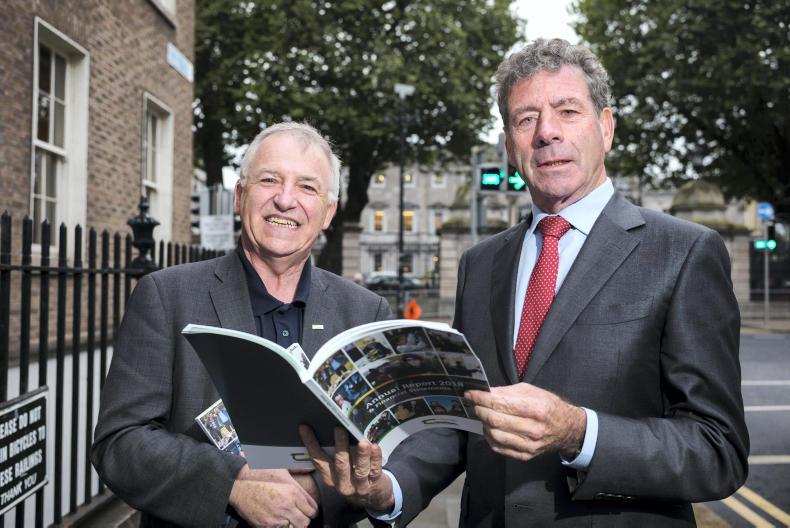Teagasc income for 2018 stood at €195m, an increase of €8m on 2017, according to its annual report and accounts for 2018. This figure excludes its net deferred funding for pensions.
Last year, Teagasc received an increase of €6.432m in grant aid compared with 2017, while research income increased by 6.3% to €1.924m.
Knowledge Transfer income fell by 12.7% to €3.251m, with a drop of €1.639m in advisory services income and €1.646m in course fee/student fee income.
Proceeds of €488,000 were secured in 2018 for sales of assets and there was additional one-off capital funding of €1.935m for the development of Johnstown Castle and for the purchase of a parcel of farm land.
At the launch of the Teagasc annual report 2018 -- Teagasc income rose by €8m last year big focus on addressing climate change and water quality. @farmersjournal @teagasc pic.twitter.com/jrnRM7h09c
— Barry Cassidy (@BarryJCassidy) October 10, 2019
Farmer clients
The national network of 240 Teagasc advisers served almost 43,000 farmer clients in 2018, according to the body.
There were 18,507 Teagasc profit monitors completed in total during 2018.
Climate change
Speaking at the launch of the Teagasc annual report and financial statements for 2018, chair of the Teagasc authority Liam Herlihy said: “Climate change is one of the biggest challenges facing us all. In 2018, Teagasc produced a major report titled ‘Analysis of Abatement Potential of Greenhouse Gas Emissions in Irish Agriculture 2021-2030’, which identified measures that can be adopted by farmers to reduce the emissions from farming.
“Many of these measures have subsequently been included in the Government action plan on climate change which was published earlier this year.
“Teagasc [is] intensifying its Knowledge Transfer activities with farmers to improve the adoption of these measures, so agriculture is playing its part in addressing the challenge of reducing GHG emissions.”
Teagasc has made a number of important investments to help the agriculture and food industry prepare for, and adapt to, the challenges ahead
Teagasc director Professor Gerry Boyle said: “2018 was a difficult year for the farming sector due to weather-related difficulties in the winter, spring and summer.
“The uncertainty created by Brexit has already impacted on the agriculture sector through a weakening of the sterling exchange rate with the euro. Further Brexit-related challenges face the sector.
"Teagasc has made a number of important investments to help the agriculture and food industry prepare for, and adapt to, the challenges ahead,” he said.
In 2018, over €2.1m was invested in horticulture facilities at Teagasc Ashtown, including a modern glasshouse equipped with advanced systems for research, a turf grass academy, a horticultural utility building, a large multi-span forestry polytunnel and additional polytunnels.
A mushroom research unit, which has 100m2 of growing area to support a dedicated mushroom research programme, was also established.






 This is a subscriber-only article
This is a subscriber-only article











SHARING OPTIONS: